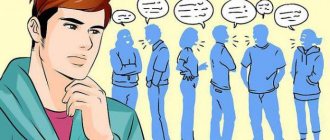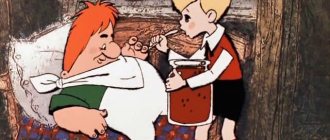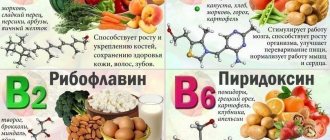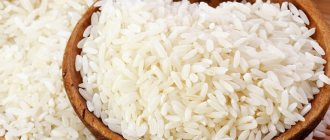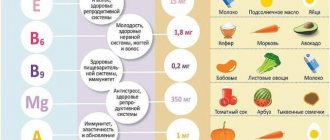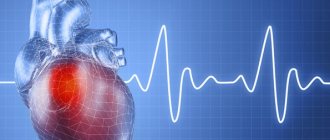What heart diseases occur due to nervousness?
Heart disease and the human nervous system are inextricably linked with each other. When happy or, conversely, sad news appears, the heart rate immediately increases. Often, pain in the heart area occurs in people with a weak psyche who are easily excited. At the slightest excitement, they experience a rapid pulse and chest pain. In addition, there are people who use pain in the heart for manipulation, although they themselves often do not realize this. What is the name for heart disease caused by nerves? In fact, there are a large number of different ailments that provoke pain after stressful situations in the heart area. Each disease has its own characteristics of manifestation, methods of treatment and consequences.
Thus, patients with angina pectoris, worrying about something, experience vasospasm, manifested by discomfort in the chest. People suffering from hypertension or hypotension experience a significant increase or decrease in blood pressure when they are stressed, which causes a tingling sensation in the chest. Doctors note that the list of heart ailments associated with nervous experiences can be endless, since they are all, to one degree or another, associated with stressful situations.
How to understand whether your heart hurts from stress or not
Human physiology is full of secrets and mysteries. The organs and systems of the human body, like a clockwork, work effectively until the first slightest failure. The heart is constantly exposed to stress not only from human physical activity, but also from stress and nervous breakdowns. The signs of ordinary, classic cardialgia are easily confused with a pathological condition of a psychological nature.
The appearance of pain or numbness in the heart area forces a person to resort to taking medications. After taking nitro drugs, the discomfort should go away. But, if the symptoms remain, then this is a direct sign of psychogenic cardialgia. In addition, after stress, chest discomfort can bother a person for several hours or even days. And most often, even rest does not affect the normalization of the condition. In a situation where the body has succumbed to psychological and emotional stress, the influence of hormones on the cardiovascular system is unpredictable.
More than half of patients experience pain after stress, which goes away on their own, without appropriate treatment. But there is a risk that rare painful attacks will cause hypertension, atherosclerosis and other diseases.
According to the results of numerous studies, heart disease is most often diagnosed in people exposed to a certain load on the nervous system. Overwork, nervous breakdowns, frequent stress due to problems at work, as well as lack of time to restore the body lead to pathological disorders. In addition, cases of myocardial infarction due to nervous conditions are common. And such a disease is deadly.
Angina or nerve problem
Can my heart pound from nerves? Yes maybe. And it is very important to distinguish neuralgic cardialgia from organic ones associated with diseases of the coronary vessels that feed the heart, ischemia and myocardial infarction. We must remember that with angina:
- pain in the heart area is not fixed at one point, as with neuroses, but spreads throughout the sternum, radiating to the arm and left shoulder blade;
- aches occur during emotional and physical stress and go away when they are eliminated; it can also be eliminated by taking nitroglycerin.
With neurotic pain, its intensity constantly changes, wandering around the chest and creating new experiences for the patient.
How to distinguish real heart problems due to nerves from neurosis
With diseases of the cardiovascular system, severe compressive pain occurs in the chest, which radiates to the left arm, shoulder or shoulder blade. The patient is unable to hold his breath due to shortness of breath. If left untreated, the condition worsens.
Cardiac neurosis is characterized by imaginary shortness of breath due to anxiety. The pain is constant and aching. When the attack passes, the state of health improves, and no abnormalities are found during the examination. Treatment is the prescription of sedatives and psychotherapy.
Causes
Frequent stressful situations and prolonged nervous strain negatively affect the tone of the autonomic system, negatively affecting the normal functioning of the heart. Pain most often occurs when:
- hereditary predisposition - a weakened nervous system reacts to minor emotional stress;
- stressful situations - lead to disruption of the functioning of nerve centers, vascular spasms occur, blood flow is disrupted, oxygen starvation causes pain;
- climate change - the autonomic nervous system adapts to other conditions, a stressful situation arises and the heart hurts from the nerves;
- hormonal changes - the period of maturation, pregnancy and menopause not only change the functioning of the hormonal system, but also the vegetative one, during which the heart adapts to other conditions;
- mental illnesses – neuroses, depression, anxiety.
Differences from organic heart pathologies
Pain in the sternum during strong experiences occurs in people suffering from neurological disorders, for example, neuroses. But it is extremely important to understand that the heart hurts from nerves. There are a number of signs that indicate that a person is not suffering from a serious illness:
- Pain occurs only during psychological experiences and is not associated with physical activity.
- People who suffer from nervous cardialgia often have relatives who have experienced a heart attack.
- The complaints are vague. A person who suffers from a disease of the cardiovascular system can describe his feelings. With neurosis, pain can change; a person describes an attack based on the experience of loved ones or on the literature read. This baffles even an experienced cardiologist.
There are no obvious signs of pathology on the ECG in such patients.
- A person strives to attract the attention of others. For pain caused by organic pathologies, patients behave quietly, focusing on internal sensations.
- With coronary heart disease, pain is referred to other parts of the body, such as the arm or back. In a neurotic disorder, pain is clearly localized.
- There are no signs of organic pathology on the ECG.
- In organic pathologies, pain can appear with both negative and positive emotions. In the case of a neurotic disorder, complaints are usually noted only in cases of stress.
- Taking medications for heart disease during neurosis causes almost instant relief. If you have heart disease, the medicine begins to work within a few minutes.
These patients feel better immediately after taking the pill.
One should not think that a person who complains of pain in the heart is trying to deliberately mislead others. As a rule, he really feels pain, which causes him real suffering. In addition, with frequent cardialgia, nervous heart diseases may develop, which will require medical intervention.
Other factors
In addition to the problems listed above, the functioning of the autonomic system and heart problems are influenced by the character traits of people. The heart often hurts from nerves in patients related to:
- selfish, hysterical, loud and mannered individuals;
- neurasthenics – with an unstable nervous system, increased irritability, unstable sleep, impaired appetite, who often find themselves at the center of conflicts;
- psychasthenics - susceptible to obsessive thoughts, unreasonable fears and natural vindictiveness;
- asthenics - those with modesty and uncertainty in their actions; they avoid communicating with people and are afraid of criticism.
In a family where children are raised, it is necessary to pay special attention to the psychological climate, which influences the formation of the child’s psychotype and his perception of life situations.
Table of diseases corresponding to psychological disorders (part 1)
Alcoholism, drug addiction.
- Not being able to cope with something. Terrible fear. The desire to get away from everyone and everything. Not wanting to be here.
- Feelings of futility, inadequacy. Rejection of one's own personality.
Allergy.
- Who can't you stand? Denial of one's own power.
- A protest against something that cannot be expressed.
- It often happens that the parents of an allergic person often argued and had completely different views on life.
Appendicitis.
Fear. Fear of life. Blocking out all the good stuff.
Insomnia.
- Fear. Distrust in the life process. Guilt.
- Escape from life, unwillingness to acknowledge its shadow sides.
Vegetative dystonia.
Infantility, low self-esteem, tendency to doubt and self-blame.
Weight: problems.
Excessive appetite.
Fear. Self-defense. Distrust of life. Feverish overflow and release of feelings of self-hatred.
Obesity.
- Hypersensitivity. Often symbolizes fear and the need for protection. Fear can serve as a cover for hidden anger and unwillingness to forgive. Trust in yourself, in the very process of life, abstaining from negative thoughts - these are the ways to lose weight.
- Obesity is a manifestation of the tendency to protect ourselves from something. The feeling of inner emptiness often awakens the appetite. Eating provides many people with a sense of acquisition. But mental deficiency cannot be filled with food. Lack of trust in life and fear of life’s circumstances plunge a person into trying to fill the spiritual emptiness with external means.
Lack of appetite.
Denial of privacy. Strong feelings of fear, self-hatred and self-denial.
Thin.
Such people do not like themselves, feel insignificant compared to others, and are afraid of being rejected.
And that's why they try to be very kind. Cellulite (inflammation of the subcutaneous tissue).
Accumulated anger and self-punishment. Forces herself to believe that nothing bothers her.
Inflammatory processes.
Fear. Fury. Inflamed consciousness. The conditions you see in life cause anger and frustration.
Hirsutism (excessive hair growth in women).
Hidden anger. The cover commonly used is fear. The desire to blame. Often: reluctance to engage in self-education.
Eye diseases.
The eyes symbolize the ability to clearly see the past, present, and future. Perhaps you don't like what you see in your own life.
Astigmatism.
Rejection of one's own self. Fear of seeing yourself in your true light.
Myopia.
Fear of the future.
Glaucoma.
The most persistent unwillingness to forgive. Old grievances are pressing. Overwhelmed by it all.
Farsightedness.
Feeling out of this world.
Cataract.
Inability to look forward with joy. Foggy future.
Conjunctivitis.
Some event happened in life that caused strong anger, and this anger is intensified by the fear of experiencing this event again.
Blindness, retinal detachment, severe head injury.
A harsh assessment of another person’s behavior, jealousy coupled with contempt, arrogance and rigidity.
Dry eyes.
Evil eyes. Reluctance to look with love. I would rather die than forgive. Sometimes a manifestation of malevolence.
Barley.
- Occurs in a very emotional person who cannot get along with what he sees.
- And who feels anger and irritation when he realizes that other people look at the world differently.
Head: diseases.
Jealousy, envy, hatred and resentment.
Headache.
- Underestimating yourself. Self-criticism. Fear. Headaches occur when we feel inferior and humiliated. Forgive yourself and your headache will go away on its own.
- Headaches often occur from low self-esteem, as well as from low resistance to even minor stress. A person complaining of constant headaches is literally all psychological and physical pressure and tension. The usual state of the nervous system is to always be at the limit of its capabilities. And the first symptom of future illnesses is a headache. Therefore, doctors working with such patients first teach them to relax.
- Loss of contact with your true self. The desire to meet the high expectations of others.
- Trying to avoid any mistakes.
Migraine.
- Hatred of coercion. Resistance to the course of life.
- Migraines are created by people who want to be perfect, as well as by those who have accumulated a lot of irritation in this life.
- Sexual fears.
- Hostile envy.
- Migraine develops in a person who does not give himself the right to be himself.
Throat: diseases.
- Inability to stand up for yourself. Swallowed anger. Crisis of creativity. Reluctance to change. Throat problems arise from the feeling that we “don’t have a right” and from a feeling of inadequacy.
- The throat, in addition, is a part of the body where all our creative energy is concentrated. When we resist change, we often develop throat problems.
- You need to give yourself the right to do what you want, without blaming yourself and without fear of disturbing others.
- A sore throat is always an irritation. If he is accompanied by a cold, then, in addition to this, there is also confusion.
Angina.
- You refrain from using harsh words. Feeling unable to express yourself.
- You feel angry because you cannot cope with a situation.
Laryngitis.
Anger makes it difficult to speak. Fear prevents you from speaking out. I am being dominated.
Tonsillitis.
Fear. Suppressed emotions. Stifled creativity. Belief in one's inability to speak up for oneself and seek satisfaction of one's needs on one's own.
Hernia.
Broken relationships. Tension, burden, improper creative self-expression.
Childhood diseases.
Belief in calendars, social concepts and made-up rules. The adults around us act like children.
Adenoids.
A child who feels unwanted.
Asthma in children.
Fear of life. Not wanting to be here.
Eye diseases.
Reluctance to see what is happening in the family.
Otitis
(inflammation of the external auditory canal, middle ear, inner ear). Anger. Reluctance to listen. There is noise in the house. Parents are quarreling.
Habit of biting nails.
Hopelessness. Self-criticism. Hatred towards one of the parents.
Staphylococcus in children.
An irreconcilable attitude towards the world and towards people in parents or ancestors.
Rickets.
Emotional hunger. The need for love and protection.
Childbirth: deviations.
Karmic.
Diabetes.
- Longing for something unfulfilled. Strong need for control. Deep grief. There is nothing pleasant left.
- Diabetes can be caused by a need for control, sadness, and an inability to accept and process love. A diabetic cannot tolerate affection and love, although he craves it. He unconsciously rejects love, despite the fact that at a deep level he experiences a strong need for it. Being in conflict with himself, in self-rejection, he is unable to accept love from others. Finding inner peace of mind, openness to accept love and the ability to love is the beginning of recovery from illness.
- Attempts to control, unrealistic expectations of universal happiness and sadness to the point of hopelessness that this is not possible. Inability to live your life, because it does not allow (does not know how) to rejoice and enjoy your life events.
Respiratory tract: diseases.
- Fear or refusal to breathe life deeply. You don’t recognize your right to occupy space or exist at all.
- Fear. Resistance to change. Lack of trust in the process of change.
Asthma.
- Inability to breathe for one's own good. Feeling depressed. Holding back sobs. Fear of life. Not wanting to be here.
- A person with asthma feels like they have no right to breathe on their own. Asthmatic children are, as a rule, children with a highly developed conscience. They take the blame for everything.
- Asthma occurs when there are suppressed feelings of love in the family, suppressed crying, the child experiences fear of life and does not want to live anymore.
- Asthmatics express more negative emotions, are more likely to be angry, offended, harbor anger and a thirst for revenge compared to healthy people.
- Asthma and lung problems are caused by the inability (or unwillingness) to live independently, as well as a lack of living space. Asthma, convulsively holding back air currents entering from the outside world, indicates a fear of frankness, sincerity, of the need to accept what new things bring every day. Gaining trust in people is an important psychological component that promotes recovery.
- Repressed sexual desires.
- Wants too much; takes more than he should and gives with great difficulty. He wants to appear stronger than he is and thereby arouse love for himself.
Sinusitis.
- Suppressed self-pity.
- A prolonged situation of “everyone is against me” and an inability to cope with it.
Runny nose.
Request for help. Internal crying. You are a victim. Lack of recognition of one's own value.
Nasopharyngeal discharge.
Children's crying, internal tears, the feeling of victimhood.
Nosebleeds.
The need for recognition, the desire for love.
Sinusitis.
Irritation caused by one of your loved ones.
Cholelithiasis.
- Bitterness. Heavy thoughts. Curses. Pride.
- They look for bad things and find them, scold someone.
Stomach diseases.
- Horror. Fear of new things. Inability to learn new things. We don’t know how to assimilate the new life situation.
- The stomach reacts sensitively to our problems, fears, hatred of others and ourselves, dissatisfaction with ourselves and our fate. Suppressing these feelings, unwillingness to admit them to oneself, an attempt to ignore and “forget” them instead of comprehending, realizing and resolving them can cause various gastric disorders.
- Gastric functions are upset in people who react with shame to their desire to receive help or a manifestation of love from another person, the desire to lean on someone. In other cases, the conflict is expressed in a feeling of guilt due to the desire to take something by force from another. The reason why the gastric functions are so vulnerable to such conflict is that food represents the first obvious gratification of the receptive-collective desire. In a child's mind, the desire to be loved and the desire to be fed are very deeply connected. When, at a more mature age, the desire to receive help from another causes shame or shyness, which is often in a society whose main value is independence, this desire finds regressive satisfaction in an increased craving for food. This craving stimulates gastric secretions, and chronic increased secretion in a predisposed individual can lead to the formation of ulcers.
Gastritis.
- Prolonged uncertainty. Feeling of doom.
- Irritation.
- A strong outburst of anger in the near past.
Heartburn.
- Fear. The grip of fear.
- Heartburn and excess gastric juice indicate repressed aggressiveness. The solution to the problem at the psychosomatic level is seen to be the transformation of the forces of suppressed aggression into the action of an active attitude towards life and circumstances.
Ulcer of the stomach and duodenum.
- Fear. A firm belief that you are flawed. We fear that we are not good enough for our parents, bosses, teachers, etc. We literally can't stomach what we are. We constantly try to please others. No matter what position you hold at work, you may have a complete lack of self-esteem.
- Almost all patients suffering from ulcers have a deep internal conflict between the desire for independence, which they highly value, and the need for protection, support and care, inherent in childhood.
- These are people trying to prove to everyone that they are needed and irreplaceable.
- Envy.
- People with peptic ulcer disease are characterized by anxiety, irritability, increased efficiency and a heightened sense of duty. They are characterized by low self-esteem, accompanied by excessive vulnerability, shyness, touchiness, self-doubt and, at the same time, increased demands on themselves and suspiciousness. It has been noticed that these people strive to do much more than they really can. A typical tendency for them is to actively overcome difficulties combined with strong internal anxiety.
- Anxiety, hypochondria.
- Suppressed feeling of dependence.
- Irritation, indignation and at the same time helplessness from trying to change oneself by adjusting to someone else's expectations.
Teeth: diseases.
- Prolonged indecision. Inability to recognize ideas for subsequent analysis and decision making. Loss of the ability to confidently plunge into life.
- Fear.
- Fear of failure, to the point of losing faith in yourself.
- Instability of desires, uncertainty in achieving the chosen goal, awareness of the insurmountability of life's difficulties.
- A problem with your teeth tells you that it’s time to take action, specify your desires and begin to implement them.
Gums: diseases.
Inability to carry out decisions. Lack of a clearly expressed attitude towards life.Bleeding gums.
Lack of joy about decisions made in life.
Infectious diseases. Weakness of immunity.
- Irritation, anger, frustration. Lack of joy in life. Bitterness.
- Triggers are irritation, anger, frustration. Any infection indicates an ongoing mental disorder. Weak resistance of the body, which is superimposed by infection, is associated with a violation of mental balance.
- Weakness of the immune system is caused by the following reasons: – Lack of self-love; - Low self-esteem; – Self-deception, self-betrayal, therefore lack of peace of mind; – Hopelessness, despondency, lack of taste for life, suicidal tendencies; – Internal discord, contradictions between desires and deeds; – The immune system is associated with self-identity, our ability to distinguish ours from someone else’s, to separate “I” from “not I.”
Stones.
They can form in the gallbladder, kidneys, and prostate. As a rule, they appear in people who have been harboring for a long time some difficult thoughts and feelings associated with dissatisfaction, aggression, envy, jealousy, etc. The person is afraid that others will guess about these thoughts. A person is rigidly focused on his ego, will, desires, perfection, abilities and intelligence.
Cyst.
Constantly replaying past grievances in your head. Incorrect development.
Intestines: problems.
- Fear of getting rid of everything that is outdated and unnecessary.
- A person makes hasty conclusions about reality, rejecting it all if he is not satisfied with only a part.
- Irritability due to an inability to integrate contradictory aspects of reality.
Anorectal bleeding (the presence of blood in the stool).
Anger and disappointment. Apathy. Resistance to feelings. Suppression of emotions. Fear.
Haemorrhoids.
- Fear of not meeting the allotted time.
- Anger is in the past. Burdened feelings. Inability to get rid of accumulated problems, grievances and emotions. The joy of life is drowned in anger and sadness.
- Fear of separation.
- Suppressed fear. Must do a job you don't like. Something urgently needs to be completed in order to receive certain material benefits.
Constipation.
- Reluctance to part with outdated thoughts. Getting stuck in the past. Sometimes in a sarcastic way.
- Constipation indicates an excess of accumulated feelings, ideas and experiences that a person cannot or does not want to part with and cannot make room for new ones.
- Tendency to dramatize some event in one’s past, inability to resolve that situation (complete the gestalt)
Irritable bowel syndrome.
- Infantility, low self-esteem, tendency to doubt and self-blame.
- Anxiety, hypochondria.
Colic.
Irritation, impatience, dissatisfaction with the environment.
Colitis.
Uncertainty. Symbolizes the ability to easily part with the past. Fear of letting something go. Unreliability.
Flatulence.
- Tightness.
- Fear of losing something important or being in a hopeless situation. Worry about the future.
- Unrealized ideas.
Indigestion.
Animal fear, horror, restless state. Grumbling and complaining.
Belching.
Fear. Too greedy attitude towards life.
Diarrhea.
Fear. Refusal. Running away.
Colon mucosa.
A layer of outdated, confused thoughts clog the channels for removing toxins. You are trampling in the viscous quagmire of the past.
Skin: diseases.
Reflects what a person thinks about himself, the ability to value himself in the face of the world around him. A person is ashamed of himself and attaches too much importance to the opinions of others. Rejects himself, just as others reject him.
- Anxiety. Fear. An old sediment in the soul. I'm being threatened. Fear that you will be offended.
- Loss of sense of self. Refusal to take responsibility for one's own feelings.
Abscess (ulcer).
Disturbing thoughts of resentment, neglect and revenge.
Herpes simplex.
A strong desire to do everything badly.
Unspoken bitterness. Fungus.
Retarded beliefs. Reluctance to part with the past. Your past dominates your present.
Itching.
Desires that go against character. Dissatisfaction. Repentance. The desire to get out of the situation.
Neurodermatitis.
A patient with neurodermatitis has a pronounced desire for physical contact, suppressed by the restraint of his parents, so he has disturbances in the organs of contact.
Burns.
Anger. Internal boiling.
Psoriasis.
- Fear of being offended, wounded.
- Mortification of feelings and self. Refusal to accept responsibility for one's own feelings.
Acne (pimples).
- Disagreement with yourself. Lack of self-love;
- A sign of a subconscious desire to push others away and not allow oneself to be considered. (i.e. not enough self-respect and acceptance of yourself and your inner beauty)
Furuncle.
A particular situation poisons a person’s life, causing intense feelings of anger, anxiety and fear.
Neck: diseases.
- Reluctance to see other sides of the issue. Stubbornness. Lack of flexibility.
- Pretends that the disturbing situation does not bother him at all.
Eczema.
- Irreconcilable antagonism. Mental breakdowns.
- Uncertainty about your future.
Bones, skeleton: problems.
A person values himself only for being useful to others.
Arthritis.
- The feeling of not being loved. Criticism, resentment.
- They cannot say “no” and blame others for exploiting them. For such people, it is important to learn to say “no” if necessary.
- An arthritic is someone who is always ready to attack, but suppresses this desire within himself. There is a significant emotional influence on the muscular expression of feelings, which is extremely controlled.
- Desire for punishment, self-blame. State of the victim.
- A person is too strict with himself, does not allow himself to relax, and does not know how to express his desires and needs. The “inner critic” is too well developed.
Herniated intervertebral discs.
The feeling that life has completely deprived you of support.
Rachiocampsis.
Inability to go with the flow of life. Fear and attempts to hold on to outdated thoughts. Distrust of life. Lack of integrity of nature. No courage of conviction.
Low back pain.
Unfulfilled expectations in the sphere of interpersonal relationships.
Radiculitis.
Hypocrisy. Fear for money and for the future.
Rheumatoid arthritis.
- Extremely critical attitude towards the manifestation of force. Feeling like too much is being put on you.
- In childhood, these patients have a certain upbringing style aimed at suppressing the expression of emotions with an emphasis on high moral principles; it can be assumed that the constantly suppressed inhibition of aggressive and sexual impulses since childhood, as well as the presence of an overdeveloped superego, forms a poorly adaptive protective mental mechanism - repression. This protective mechanism involves the conscious displacement of disturbing material (negative emotions, including anxiety, aggression) into the subconscious, which in turn contributes to the emergence and increase of anhedonia and depression. The predominant ones in the psycho-emotional state are: anhedonia - a chronic deficiency of the sense of pleasure, depression - a whole complex of sensations and feelings, of which low self-esteem and guilt, a feeling of constant tension are most characteristic of rheumatoid arthritis. the suppression mechanism prevents the free release of psychic energy, the growth of internal, hidden aggressiveness or hostility. All these negative emotional states, when present for a long time, can cause dysfunction in the limbic system and other emotiogenic zones of the hypothalamus, changes in activity in the serotonergic and dopaminergic neurotransmitter systems, which in turn leads to certain changes in the immune system, and together with the emotionally dependent state found in these patients tension in the periarticular muscles (due to constantly suppressed psychomotor excitation) can serve as a mental component of the entire mechanism of development of rheumatoid arthritis.
Back: diseases of the lower part.
- Fear about money. Lack of financial support.
- Fear of poverty, material disadvantage. Forced to do everything myself.
- Fear of being used and not getting anything in return.
Back: diseases of the middle part.
- Guilt. Attention is focused on everything that is in the past. "Leave me alone".
- The conviction that no one can be trusted.
Back: diseases of the upper part.
Lack of moral support. The feeling of not being loved. Containing feelings of love.
Blood, veins, arteries: diseases.
- Lack of joy. Lack of movement of thought.
- Inability to listen to one's own needs.
Anemia.
Lack of joy. Fear of life. Believing in your own inferiority deprives you of the joy of life.
Arteries (problems).
Problems with arteries - inability to enjoy life. He does not know how to listen to his heart and create situations associated with joy and fun.
Atherosclerosis.
- Resistance. Tension. Refusal to see the good.
- Frequent upset due to sharp criticism.
Phlebeurysm.
- Staying in a situation you hate. Disapproval.
- Feeling overloaded and overwhelmed by work. Exaggerating the severity of problems.
- Inability to relax due to feelings of guilt when receiving pleasure.
Hypertension, or hypertension (high blood pressure).
- Self-confidence - in the sense that you are ready to take on too much. As much as you can't stand.
- There is a direct connection between anxiety, impatience, suspicion and the risk of hypertension.
- Due to the self-confident desire to take on an unbearable load, to work without rest, the need to meet the expectations of the people around them, to remain significant and respected in their person, and due to this, the repression of one’s deepest feelings and needs. All this creates corresponding internal tension. It is advisable for a hypertensive person to give up the pursuit of the opinions of people around him and learn to live and love people, first of all, in accordance with the deep needs of his own heart.
- Emotion, not reactively expressed and deeply hidden, gradually destroys the body. Patients with high blood pressure suppress mainly emotions such as anger, hostility and rage.
- Hypertension can be caused by situations that do not give a person the opportunity to successfully fight for recognition of his own personality by others, excluding a feeling of satisfaction in the process of self-affirmation. A person who is suppressed and ignored develops a feeling of constant dissatisfaction with himself, which finds no way out and forces him to “swallow resentment” every day.
- Hypertensive patients who are chronically ready to fight have dysfunction of the circulatory system. They suppress free expression of hostility towards other people out of a desire to be loved. Their hostile emotions seethe but have no outlet. In their youth they can be bullies, but as they get older they notice that they push people away with their vindictiveness and begin to suppress their emotions.
Hypotension, or hypotension (low blood pressure).
- Dejection, uncertainty.
- They killed your ability to independently create your life and influence the world.
- Lack of love in childhood. Defeatist mood: “Nothing will work out anyway.”
Hypoglycemia (low blood glucose).
Depressed by the hardships of life. “Who needs this?”
CONTINUATION OF THE TABLE >>
Symptoms
If a person has joyful or, on the contrary, sad events, the heart often hurts from nerves, symptoms can manifest themselves as follows:
- tightness in the chest and discomfort in the heart area;
- burning and pain radiating to the left hypochondrium;
- feeling of fullness in the chest;
- tingling and aching sensations in the heart area;
- aching in the shoulder blade, lower back and neck;
- neuralgia throughout the left half of the chest.
Painful sensations are often accompanied by the following signs of poor health:
- fear, anxiety, strong excitement;
- rapid heartbeat;
- increased sweating;
- breathing problems, lack of air;
- chills or fever;
- pressure surges;
- headache;
- frequent urination, diarrhea;
- blackout.
Palpitations often occur during stress and panic attacks, but in these cases it does not cause harm to the person.
First aid
If a patient has heart problems due to nerves, you should call an ambulance, and before it arrives:
- give the patient a horizontal position;
- ensure a flow of fresh air - open the window, unfasten the collar;
- measure pulse and blood pressure;
- calm down and give water to drink;
- give Corvalol or Valocordin drops.
To maintain calm in stressful situations, every person needs to learn to breathe properly and meditate, this will help maintain peace and restraint.
Diagnostics
To find out and make a diagnosis (doctors are well aware that the heart can be caused by nerves), you need to visit one of the doctors - a neurologist, cardiologist, therapist or psychotherapist and undergo the prescribed examination. The doctor usually conducts a conversation with the patient, finding out all the details of the occurrence of heart pain. After collecting anamnesis, visual examination of the patient and measuring blood pressure, the following is prescribed:
- general and biochemical analysis of urine and blood;
- cardiogram and ultrasound of the heart;
- echocardiography;
- daily heart monitoring.
After studying all the results, the doctor, if there is insufficient information, prescribes additional examinations, recommends consultations with specialists, or immediately prescribes therapy and gives advice on eliminating heart pain from stressful situations.
Diagnosis and treatment
No doctor will begin to treat his patient without knowing the underlying factors that influenced his pathological condition. Such measures will help eliminate organic disease from the extensive list of diseases that could lead a person to a heart attack and other problems with the cardiovascular system. The cause of the pathology can be determined by diagnostic tests such as:
- laboratory blood and urine tests;
- echocardiography;
- heart monitoring;
- blood pressure measurement.
The need for certain studies is determined by the attending physician. It is often necessary to undergo an ultrasound examination of the neck vessels and an ultrasound examination of the thyroid gland. Only after completing all the studies, the specialist determines what to do with the patient.
Treatment of the patient is carried out with the aim of maintaining or restoring a normal state of health. This concerns not only the treatment of cardiac pathologies, but also the psycho-emotional state of a person.
Most often, the emotional background is restored by taking sedatives and antidepressants. You can strengthen the functioning of the heart with drugs recommended for use in cardiology.
Echocardiography is necessary for diagnosis
My heart hurts from nerves - what to do?
The main methods of therapy for cardioneurosis are aimed at putting the psychological state in order and increasing resistance to irritating factors. If the ECG does not reveal any abnormalities and there is good tolerance to physical activity, then the doctor simply conducts a calming conversation with the patient, explaining how to improve relationships in the family and at work. It is recommended:
- hardening of the body;
- constant physical activity - daily walks in the fresh air, running, swimming in indoor and outdoor reservoirs, cycling, race walking, skiing and skating;
- physiotherapy – baths, massage, electrosleep;
- balanced diet - include vegetables, fruits, lean meat, fish, cereals, dairy and fermented milk products in the diet;
- sanatorium-resort holiday.
All these procedures with the correct daily routine will help put the nervous system in order.
All diseases are caused by nerves. Is it so?
Psychosomatics is a term adopted in medicine to designate an approach to explaining diseases, in which special attention is paid to the role of mental factors in the occurrence, course and outcome of diseases. Psychosomatics studies the influence of psychological factors on the occurrence of a number of somatic (physical) diseases.
According to scientists, about 50% of all diseases in industrialized countries are psychogenic in nature. The main method of treatment is psychotherapy, the purpose of which is to establish hidden connections for the patient himself between his emotional conflicts and the occurrence of symptoms of the disease.
As you know, pain indicates that something in the body is not working correctly. This is a kind of signal for help. When our emotions go unheard for a long time, and mental pain continues to grow, the body comes to the rescue. The most vulnerable part of a person suffers. In some people, under severe stress, the cardiovascular system suffers, in others - the intestines, etc. Each person has their own body reactions, including those caused by hereditary predisposition. Diseases such as hypertension, bronchial asthma, polyarthritis, neurodermatitis, migraine are classified as psychosomatic diseases. And the list of diseases, the occurrence of which is associated with the human psyche, is growing.
There are several causes of disease:
1. Genetic or constitutional predisposition of the organ.
2. Stress, psycho trauma.
3. Internal conflict.
To paraphrase a well-known saying, you can say, “Tell me what makes you sick, and I will tell you who you are.”
The table below shows the main psychological causes of illness. It is worth noting that this is not a universal table and it will not replace traditional medicine, but it can be a good help in finding harmony of spirit and body.
Alcoholism, drug addiction . Not being able to cope with something. Terrible fear. The desire to get away from everyone and everything. Not wanting to be here.
Feelings of futility, inadequacy. Rejection of one's own personality.
Allergy . Who can't you stand? Denial of one's own power.
A protest against something that cannot be expressed. It often happens that the parents of an allergic person often argued and had completely different views on life.
Appendicitis . Fear. Fear of life. Blocking out all the good stuff.
Insomnia. Fear. Distrust in the life process. Guilt.
Escape from life, unwillingness to acknowledge its shadow sides.
Vegetative dystonia . Infantility, low self-esteem, tendency to doubt and self-blame.
Excessive appetite . Fear. Self-defense. Distrust of life. Feverish overflow and release of feelings of self-hatred.
Obesity . Hypersensitivity. Often symbolizes fear and the need for protection. Fear can serve as a cover for hidden anger and unwillingness to forgive. Trust in yourself, in the very process of life, abstaining from negative thoughts - these are the ways to lose weight.
Obesity is a manifestation of the tendency to protect ourselves from something. The feeling of inner emptiness often awakens the appetite. Eating provides many people with a sense of acquisition. But mental deficiency cannot be filled with food. Lack of trust in life and fear of life’s circumstances plunge a person into trying to fill the spiritual emptiness with external means.
Lack of appetite . Denial of privacy. Strong feelings of fear, self-hatred and self-denial.
Thinness . Such people do not like themselves, feel insignificant compared to others, and are afraid of being rejected. And that's why they try to be very kind.
Cellulite (inflammation of the subcutaneous tissue) . Accumulated anger and self-punishment. Forces herself to believe that nothing bothers her.
Myopia - Fear of the future.
Glaucoma . Stubborn unwillingness to forgive. Old grievances are pressing. Overwhelmed by it all.
Farsightedness - Feeling of being out of this world.
Cataract . Inability to look forward with joy. Foggy future.
Conjunctivitis . Some event happened in life that caused strong anger, and this anger is intensified by the fear of experiencing this event again.
Blindness, retinal detachment, severe head injury . A harsh assessment of another person’s behavior, jealousy coupled with contempt, arrogance and rigidity.
Dry eyes . Evil eyes. Reluctance to look with love. I would rather die than forgive. Sometimes a manifestation of malevolence.
Barley . Occurs in a very emotional person who cannot get along with what he sees. And who feels anger and irritation when he realizes that other people look at the world differently.
Head: diseases . Jealousy, envy, hatred and resentment.
Headache . Underestimating yourself. Self-criticism. Fear. Headaches occur when we feel inferior and humiliated. Forgive yourself and your headache will go away on its own.
Headaches often occur from low self-esteem, as well as from low resistance to even minor stress. A person complaining of constant headaches is literally all psychological and physical pressure and tension. The usual state of the nervous system is to always be at the limit of its capabilities. And the first symptom of future illnesses is a headache. Therefore, doctors working with such patients first teach them to relax.
Loss of contact with your true self. The desire to meet the high expectations of others. Trying to avoid any mistakes.
Throat: diseases . Inability to stand up for yourself. Swallowed anger. Crisis of creativity. Reluctance to change. Throat problems arise from the feeling that we “don’t have a right” and from a feeling of inadequacy.
The throat, in addition, is a part of the body where all our creative energy is concentrated. When we resist change, we often develop throat problems. You need to give yourself the right to do what you want, without blaming yourself and without fear of disturbing others. A sore throat is always an irritation. If he is accompanied by a cold, then, in addition to this, there is also confusion.
Angina . You refrain from using harsh words. Feeling unable to express yourself. Feeling angry because you cannot cope with a situation.
Laryngitis . Anger makes it difficult to speak. Fear prevents you from speaking out. I am being dominated.
Tonsillitis . Fear. Suppressed emotions. Stifled creativity. Belief in one's inability to speak up for oneself and seek satisfaction of one's needs on one's own.
Diabetes . Longing for something unfulfilled. Strong need for control. Deep grief. There is nothing pleasant left. Diabetes can be caused by a need for control, sadness, and an inability to accept and process love. A diabetic cannot tolerate affection and love, although he craves it. He unconsciously rejects love, despite the fact that at a deep level he experiences a strong need for it. Being in conflict with himself, in self-rejection, he is unable to accept love from others. Finding inner peace of mind, openness to accept love and the ability to love is the beginning of recovery from illness. Attempts to control, unrealistic expectations of universal happiness and sadness to the point of hopelessness that this is not possible. Inability to live your life, because it does not allow (does not know how) to rejoice and enjoy your life events.
Respiratory tract : diseases. Fear or refusal to breathe life deeply. You don’t recognize your right to occupy space or exist at all. Fear. Resistance to change. Lack of trust in the process of change.
Repressed sexual desires. Wants too much; takes more than he should and gives with great difficulty. He wants to appear stronger than he is and thereby arouse love for himself.
Stomach diseases . Horror. Fear of new things. Inability to learn new things. We don’t know how to assimilate the new life situation. The stomach reacts sensitively to our problems, fears, hatred of others and ourselves, dissatisfaction with ourselves and our fate. Suppressing these feelings, unwillingness to admit them to oneself, an attempt to ignore and “forget” them instead of comprehending, realizing and resolving them can cause various gastric disorders. Gastric functions are upset in people who react with shame to their desire to receive help or a manifestation of love from another person, the desire to lean on someone. In other cases, the conflict is expressed in a feeling of guilt due to the desire to take something by force from another. The reason why the gastric functions are so vulnerable to such conflict is that food represents the first obvious gratification of the receptive-collective desire. In a child's mind, the desire to be loved and the desire to be fed are very deeply connected. When, at a more mature age, the desire to receive help from another causes shame or shyness, which is often in a society whose main value is independence, this desire finds regressive satisfaction in an increased craving for food. This craving stimulates gastric secretions, and chronic increased secretion in a predisposed individual can lead to the formation of ulcers.
Gastritis . Prolonged uncertainty. Feeling of doom.
Irritation. A strong outburst of anger in the near past.
Heartburn . Fear. The grip of fear. Heartburn and excess gastric juice indicate repressed aggressiveness. The solution to the problem at the psychosomatic level is seen to be the transformation of the forces of suppressed aggression into the action of an active attitude towards life and circumstances.
Ulcer of the stomach and duodenum . Fear. A firm belief that you are flawed. We fear that we are not good enough for our parents, bosses, teachers, etc. We literally can't stomach what we are. We constantly try to please others. No matter what position you hold at work, you may have a complete lack of self-esteem. Almost all patients suffering from ulcers have a deep internal conflict between the desire for independence, which they highly value, and the need for protection, support and care, inherent in childhood. These are people trying to prove to everyone that they are needed and irreplaceable. Envy. People with peptic ulcer disease are characterized by anxiety, irritability, increased efficiency and a heightened sense of duty. They are characterized by low self-esteem, accompanied by excessive vulnerability, shyness, touchiness, self-doubt and, at the same time, increased demands on themselves and suspiciousness. It has been noticed that these people strive to do much more than they really can. A typical tendency for them is to actively overcome difficulties combined with strong internal anxiety. Anxiety, hypochondria. A suppressed feeling of dependence. Irritation, indignation and at the same time helplessness from trying to change oneself by adjusting to someone else's expectations.
Haemorrhoids . Fear of not meeting the allotted time. Anger in the past. Burdened feelings. Inability to get rid of accumulated problems, grievances and emotions. The joy of life is drowned in anger and sadness. Fear of separation. Suppressed fear. Must do a job you don't like. Something urgently needs to be completed in order to receive certain material benefits.
Constipation . Reluctance to part with outdated thoughts. Getting stuck in the past. Sometimes in a sarcastic way. Constipation indicates an excess of accumulated feelings, ideas and experiences that a person cannot or does not want to part with and cannot make room for new ones. Tendency to dramatize some event in one’s past, inability to resolve that situation (complete the gestalt)
Irritable bowel syndrome . Infantility, low self-esteem, tendency to doubt and self-blame. Anxiety, hypochondria.
Colic . Irritation, impatience, dissatisfaction with the environment.
Colitis. Uncertainty. Symbolizes the ability to easily part with the past. Fear of letting something go. Unreliability.
Flatulence . Tightness. Fear of losing something important or being in a hopeless situation. Worry about the future. Unrealized ideas.
Indigestion . Animal fear, horror, restless state. Grumbling and complaining.
Belching . Fear. Too greedy attitude towards life.
Diarrhea . Fear. Refusal. Running away.
Acne (pimples) . Disagreement with yourself. Lack of self-love;
A sign of a subconscious desire to push others away and not allow oneself to be considered. (i.e. not enough self-respect and acceptance of yourself and your inner beauty)
Furuncle . A particular situation poisons a person’s life, causing intense feelings of anger, anxiety and fear.
Neck: diseases . Reluctance to see other sides of the issue. Stubbornness. Lack of flexibility. Pretends that the disturbing situation does not bother him at all.
Eczema . Irreconcilable antagonism. Mental breakdowns. Uncertainty about your future.
Bones, skeleton: problems . A person values himself only for being useful to others.
Arthritis . The feeling of not being loved. Criticism, resentment. They cannot say “no” and blame others for exploiting them. For such people, it is important to learn to say “no” if necessary. An arthritic is someone who is always ready to attack, but suppresses this desire within himself. There is a significant emotional influence on the muscular expression of feelings, which is extremely controlled. Desire for punishment, self-blame. State of the victim. A person is too strict with himself, does not allow himself to relax, and does not know how to express his desires and needs. The “inner critic” is too well developed.
Herniated intervertebral discs . The feeling that life has completely deprived you of support.
Rachiocampsis . Inability to go with the flow of life. Fear and attempts to hold on to outdated thoughts. Distrust of life. Lack of integrity of nature. No courage of conviction.
Low back pain . Unfulfilled expectations in the sphere of interpersonal relationships.
Radiculitis . Hypocrisy. Fear for money and for the future.
Back: diseases of the lower part . Fear about money. Lack of financial support. Fear of poverty, material disadvantage. Forced to do everything myself. Fear of being used and not getting anything in return.
Back: diseases of the middle part . Guilt. Attention is focused on everything that is in the past. "Leave me alone". The conviction that no one can be trusted.
Back: diseases of the upper part . Lack of moral support. The feeling of not being loved. Containing feelings of love.
Blood, veins, arteries: diseases . Lack of joy. Lack of movement of thought. Inability to listen to one's own needs.
Anemia . Lack of joy. Fear of life. Believing in your own inferiority deprives you of the joy of life.
Arteries (problems) . Problems with arteries - inability to enjoy life. He does not know how to listen to his heart and create situations associated with joy and fun.
Atherosclerosis . Resistance. Tension. Refusal to see the good.
Frequent upset due to sharp criticism.
Phlebeurysm . Staying in a situation you hate. Disapproval. Feeling overloaded and overwhelmed by work. Exaggeration of the seriousness of problems. Inability to relax due to feelings of guilt when receiving pleasure.
Psychosomatics is one of the areas of work of our doctor - Violetta Pavlovna Orekhova (psychotherapist) . Psychotherapy will help deal with such problems and cure a number of diseases. Our Medical Center offers both individual and group classes. Also, Dr. Orekhova also accepts patients remotely. When there is no time to come to the center, or the patient wants anonymity, classes are conducted via Internet connection.
Treatment with drugs
Among medications, when the heart hurts from nerves, the following drugs are prescribed:
- painkillers - “Barboval”, “Corvalol”, “Valocordin”;
- sleeping pills and sedatives - “Persen”, “Novo-Passit”, “Fitoson”, tinctures of peony, lily of the valley with valerian, motherwort;
- for tachycardia and high blood pressure - beta blockers and antihypertensive drugs;
- for low blood pressure – extract of Rhodiola rosea, Schisandra, Eleutherococcus;
- to strengthen the myocardium - “Riboxin”, “Panangin”, “Mildronat”.
To prevent tingling in the heart during nervous stress, it is necessary to take timely care of the state of the nervous system, and in some cases it will be necessary to reconsider life principles.
Causes (diseases)
Heart pain is a problem that should not be underestimated. This condition is caused by a number of factors. The most well-known causes include smoking, alcohol, emotional stress and even sports. The different causes of heart pain also vary depending on the severity of the problem. The condition when the heart hurts from stress is less serious compared to, for example, angina pectoris.
Other reasons include:
- diabetes;
- hypertension;
- high cholesterol;
- obesity.
Pain caused by stress and mental strain often looks like a manifestation of myocardial infarction. Therefore, it is not recommended to underestimate heart pain, especially if it has been present for a long time.
Under stress or increased emotional stress, catecholamines are secreted in the body. These substances significantly affect the heart, blood vessels, and the heart's need for oxygen and nutrients. When cardiac activity is excessively high, the length of diastole, the filling phase of the heart, decreases, while the vessels supplying the heart contract due to contraction of the heart muscle. This leads to disruption of blood supply, which can result in painful sensations.
Anxiety attack
Anxiety, fear, and nervousness are normal manifestations that occur periodically. But some people experience anxiety more frequently and intensely. All it takes for them to experience an anxiety attack is a visit to the dentist or an exam. One of the physical symptoms of this condition is cardiac discomfort. There is usually a sharp, stabbing pain felt in the middle of the chest. Other problems may also be present, such as nausea, sweating, and difficulty breathing.
Panic attack
The reasons that can cause a panic attack are varied and individual for each person. This could be fear of limited space (in an elevator), fear of large crowds of people (crowded public transport), or anxiety when flying on an airplane. A person’s heart begins to ache from anxiety, usually accompanied by shortness of breath and rapid heartbeat.
Broken Heart Syndrome
Here we are talking not only about a painfully ended partnership, but also about resentment from a friend, the death of a loved one. This is not just a mental state. Excessive emotional stress can cause a number of other problems, including: heartache. A person feels tightness in the chest, shortness of breath. The heart can be quite healthy; Such symptoms are caused by substances produced in the body due to the stress response. The key factor in this syndrome is the psyche and mind.
Physiotherapeutic procedures
Physiotherapeutic treatment gives good results in eliminating pain in the heart, regulating vascular tone, stimulating the nervous system and normalizing metabolic processes. To do this, use the following procedures:
- electrophoresis - administration of drugs through the skin using electric current;
- magnetotherapy – the use of an alternating magnetic field for therapeutic purposes;
- inductothermy - the effect of heat flows on the body;
- darsonvalization - the use of pulsed alternating low-frequency current of weak strength;
- aeroionotherapy – treatment with air saturated with negative ions.
All physical procedures have a beneficial effect on strengthening the nervous system.
Traditional medicine recipes for neurotic pain
Can your heart hurt from nerves? Yes, the heart hurts, but experts do not advise worrying, because with cardioneurosis there are no irreversible changes in the blood vessels and heart. Neurosis is a disease that time heals. By eliminating the circumstances that cause injury to a person, eliminating panic attacks and maintaining a correct lifestyle, all painful sensations go away. Traditional medicine methods are very popular for restoring the nervous system. To do this, you should try the following recipes:
- Ivan tea - pour a teaspoon of dry herb into a glass of boiling water, leave, add a little honey and drink like tea;
- coriander - add a teaspoon of chopped fruit to a glass of boiling water, place in a water bath for a quarter of an hour, strain, add to the original volume, take 2 tbsp 4 times a day. l.;
- dandelion (root) – mince, squeeze and drink 30 drops four times a day;
- lavender essential oil – inhale the aroma, it will remove pain, fear and anxiety;
- relaxing baths - use sea salt, infusions of lemon balm, lavender, rose oil, turn on light music and take for 20 minutes.
All these remedies are time-tested, relieve nervous stress well and have a calming effect on the nervous system.
Treatment methods
First of all, if discomfort occurs, you need to contact a cardiologist. Medication should only be started after proper examination.
The first drug to relieve pain is Nitroglycerin. The product is usually used in fast-acting tablets applied under the tongue.
Other medications—beta blockers and calcium channel blockers—reduce the workload on the heart by slowing its rhythm and lowering blood pressure.
Often it's enough to calm down
Often people experiencing chest pain due to stress call an ambulance, fearing for their health. In this case, it is usually enough to sit down, calm down, and drink some water.
If pain persists for more than 15 minutes, you should seek medical help. We may be talking about a manifestation of a heart attack caused by mental stress.
Physical activity
Regular aerobic exercise helps maintain optimal body weight and reduce stress. Movement improves physical fitness and trains the heart, which then better copes with difficult physical and mental situations.
Emotional stability
If pain in the heart is caused by negative mental activity (anger, outbursts of anger, disappointment, etc.), it is important to avoid such situations. This is not always possible. But you can rethink your attitude towards stressors and priorities.
Relaxation exercises and meditation help a lot. Doctors recommend completely relaxing your muscles twice a day for 20 minutes. Breathing exercises and concentration on positive thoughts will help with this.
Eating habits, rational nutrition
After eating, blood is concentrated in the digestive system to provide essential nutrients. Therefore, it is not surprising that heart pain often occurs after eating difficult-to-digest foods. After eating, it is advisable to relax for about 20 minutes. The composition of the diet is also important. Control the amount of saturated fat and cholesterol (fast food, fried foods, fatty meats, lard, bacon, whipped cream, butter...).
Their excessive consumption increases cholesterol levels, which increases the risk of cardiovascular diseases due to atherosclerosis. On the contrary, unsaturated fatty acids (fish, seeds, nuts, vegetable oils) are good for the heart.
FacebookvKontakteTwitterWhatsApp
